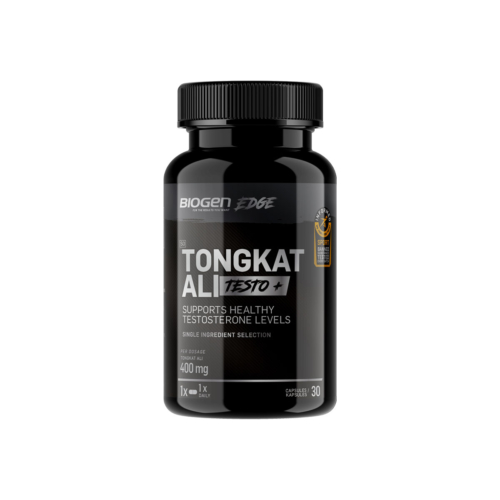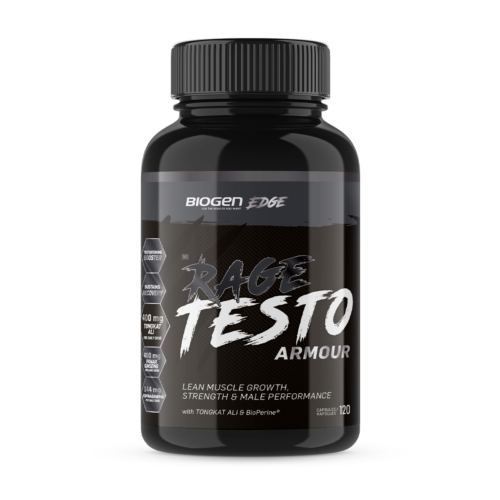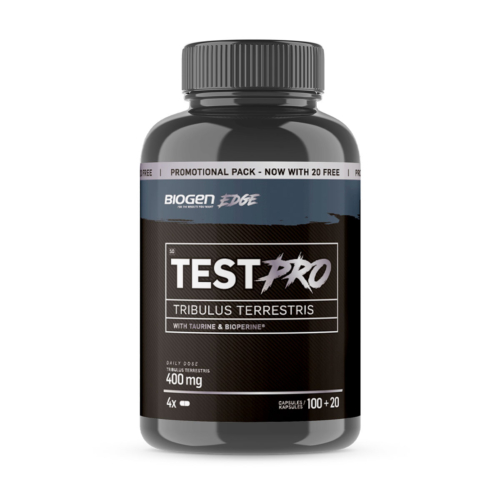
Based on the potential benefits, it is advantageous to maintain testosterone levels within the ideal healthy range
Testosterone is one of the most powerful hormones, and it plays an important role in muscle growth and strength development, bone density, recovery and numerous other bodily functions, including libido and male sexual and reproductive function.
The problem with low testosterone levels
The issue is that age and testosterone production (along with other anabolic hormones like human growth hormone) are inversely proportional. A gradual, age-associated decline in serum total testosterone levels begins in men in their mid-30s and continues at an average rate of 1.6% per year.
Various other factors can also lower testosterone levels at any age, including poor diets, stress, illness, a lack of adequate sleep, weight gain and a lack of suitable physical activity.
We can experience various symptoms when testosterone levels fall. For men, this may include decreased muscle mass, and a loss in strength and endurance, reduced libido, erectile dysfunction, hair loss, depression, hot flashes, difficulties with concentration and memory, increased body fat, enlarged male breast tissue (gynecomastia) and smaller testicles.
Women can also experience a range of symptoms when their testosterone levels dip below healthy levels. These issues could include muscle weakness, loss of bone density, reduced sex drive and decreased sexual satisfaction, sluggishness and fatigue, difficulties sleeping, weight gain, fertility issues and an irregular menstrual cycle.
Boost natural testosterone production
Your diet is a good place to start for anyone who wants to boost natural testosterone production.
Eating a diet that contains more healthy fats will help to optimise testosterone production. Research has shown that men who consumed a diet rich in monounsaturated fats had higher testosterone levels than those who ate less.
General guidelines recommend deriving at least 30% of your calories from fat, including some natural saturated fat, with an additional 4-6 grams of omega 3 fatty acids.
Train heavy to boost testosterone
Exercise is the other major avenue you have to boost testosterone. There is sufficient research available to support the recommendation to include weight training in your routine.
Lifting heavy weights using compound movements that recruit the greatest number of muscles possible, and using short but intense intervals is generally considered the best form of training aimed at increasing testosterone.
Interval training better than long duration cardio
The same principles apply for cardio. Multiple sets of short sprints are far more effective than a steady-state run or cycle in your quest to produce more of this highly anabolic hormone.
In fact, studies show that too much high-volume, lower-intensity training synonymous with endurance sports can reduce testosterone levels. In general, the longer you train each week, the lower your testosterone level will drop, with sessions that last more than two hours the most deleterious to testosterone, according to a study conducted at the University of Melbourne in Australia and published in the British Journal of Sports Medicine.
In the study, researchers found that running for short durations of less than two hours increased testosterone levels and that runs over two hours suppressed circulating testosterone.
Supplement your testosterone levels
Thankfully, we live in an age of rapid scientific advancement, which has given rise to a range of supplements that are classified as hormone boosters.
These product formulations up-regulate natural hormone production with a combination of herbals, vitamins and minerals.
Considerations before using testosterone booster supplements
Professional and competitive athletes are advised to use products with Informed Sport or Informed Choice certification.
If you have any concerns about your testosterone levels, it is advisable to discuss your concerns with your doctor, pharmacist or healthcare provider, who can assist with supplementation guidance or recommend appropriate treatment options, if necessary.













